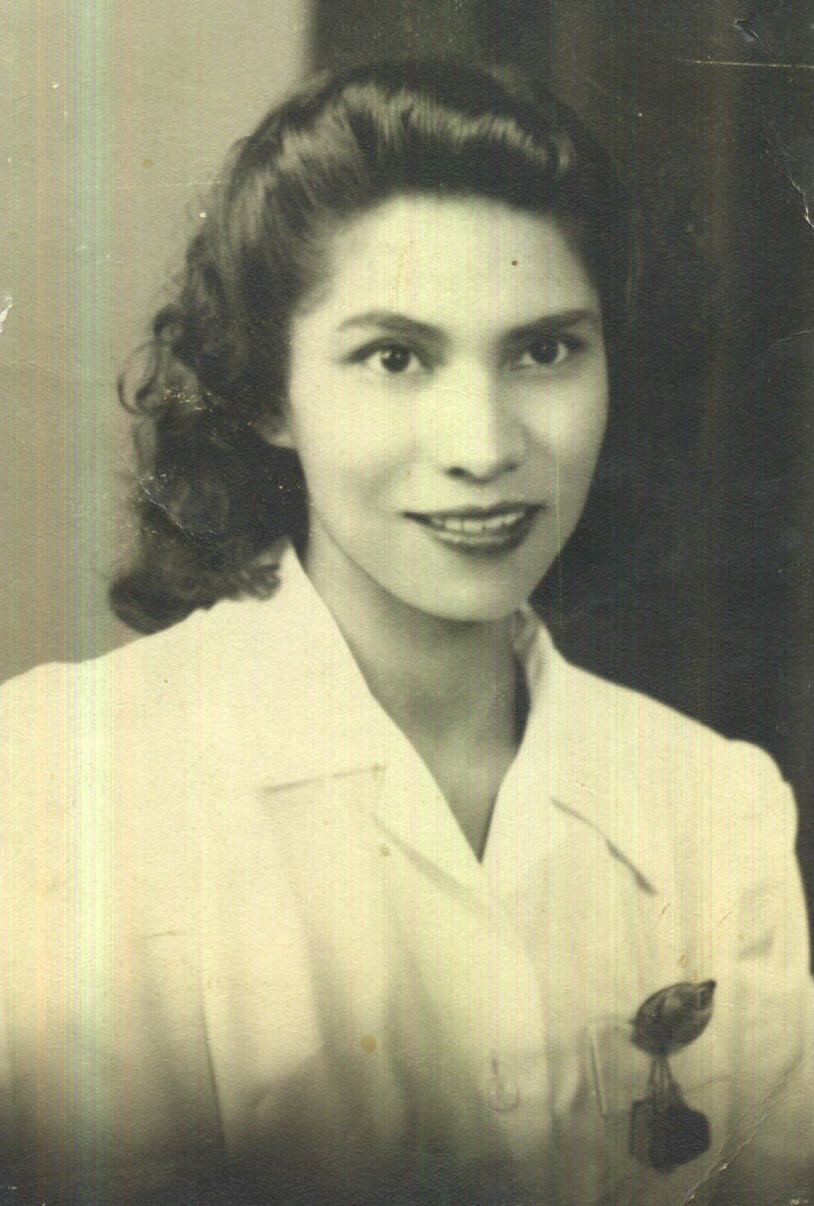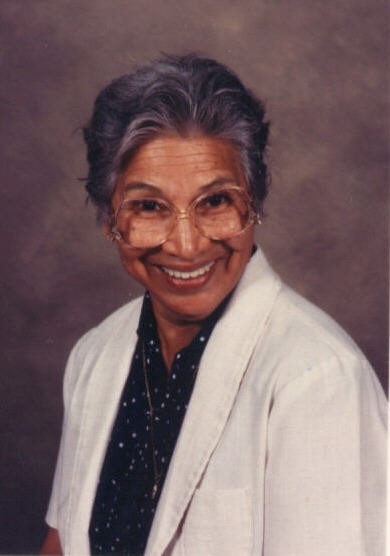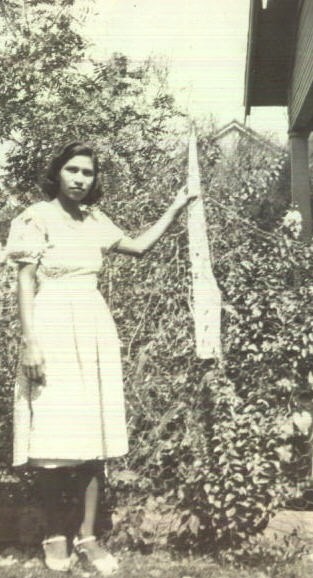Lina F. Renteria (nee Fernandez)




When did you come to San Antonio? Why?
I moved to San Antonio when I was six years old in 1921.
The reason why my family and I moved to San Antonio was because
we did not have a house, we would always be renting. I had an
aunt who lived in San Antonio, she offered her house telling us
we could move in with her. That was how we made it to San
Antonio.
Was the Depression the cause of you moving to San Antonio?
Yes, like I had said, we didn't have a stable home. There
were times we did not have money to pay our rent so we would have to be
moving houses. Since my aunt said we could stay with her we needed
a roof over our heads.
How did it affect you and your family?
"TERRIBLE, A TIEMPOS NO TENEMOS QUE COMER" (It was terrible we
did
not have food to eat at times) I remember President Roosevelt. I also
remember how my houses use to be, they were three bedrooms, kitchen,
our restrooms were outside, we had to use buckets of water to take
showers.
Back in my days we didn't have the nice and fancy shower you kids have
today.
What did your parents do while the Depression?
Well my mother worked cleaning houses as well as ironing for only
$.50
per day. As for my father I never met him and my stepdads they had little
side
jobs here and there. I never really put much attention to what they did
because
I never had a good relationship with them.
You were 12 years old when you had to drop out of school, why did you
leave,
you left to do what?
Yes I was only 12 years old about to start the sixth grade. I
didn't
leave school for the reason why many kids drop school now, I wanted to
go to
school, I wanted to learn and have an education, but I did not have the
opportunity
many kids do now. I had to leave school to help my mother support my
brothers
and sisters. We needed to eat, if we wanted food on our table I had to
work.
Can you explain to me the kind of jobs you had or performed?
I remember my first job it was at a laundry mat where I cleaned
for $.50
per day. I also remember when I was 12 years old working for my German
neighbors
who lived across the street from us, I use to work for $.50 per week
washing
dishes. I donít remember the name of the company exactly, but it was a
job offered
by the government were we had to sew clothes (shirts, pants etc...) to
give away
to the people in need. (It's very clear to me when President Roosevelt
declared
we needed to offer this help.)
What were some changes you remember the most when the Depression
started?
Not having shoes (laughs). I use to walk barefooted; can you just
imagine that?
Can you imagine not having food on the table? Wondering if we would
have food to eat
the next day? Not knowing what else might come to us.

What kind of feelings did you experience? Where you scared what went
through your mind?
(Laughs) I donít remember! I do remember hearing that people were
dying of starvation. I was
scared I didn't want may family and I to end up the same
way.
What did you do for fun?
(making fun of me, kind of laugh) "There was NO fun." We had no
fun.
But I do remember I had a friend who had a pianola from
watching her play it I learned a little so that would be my
fun.
How old were you when you and your husband got married?
I was only 21 years old when I got married. Even though my
marriage was
only three months long. I never divorced, till this moment I am still
married, but
as soon as we separated he was sent to war, I never heard from him
again. The sad part
is that I'm married to a man that I really dislike. (laughs)
What else would you like to tell me about your life during the
Depression?
Well let me tell you something that when I think about it now it
makes me laugh.
You know how I told you that I we always moved from house to house
because
of lack of money? Well one day the owner of the house my family and I
were
renting calls me into his office and tells me, "Look Lina, I've been
wanting to
talk to you but I just have not had the chance. I wanted to tell you
that I
like you and I want you to marry me!" I was shocked, I didn't like the
man, so
I told him, "I can't marry you, I don't like you." The landowner
responded,
"Well okay, now you have to leave my house I can't rent it out
anymore."